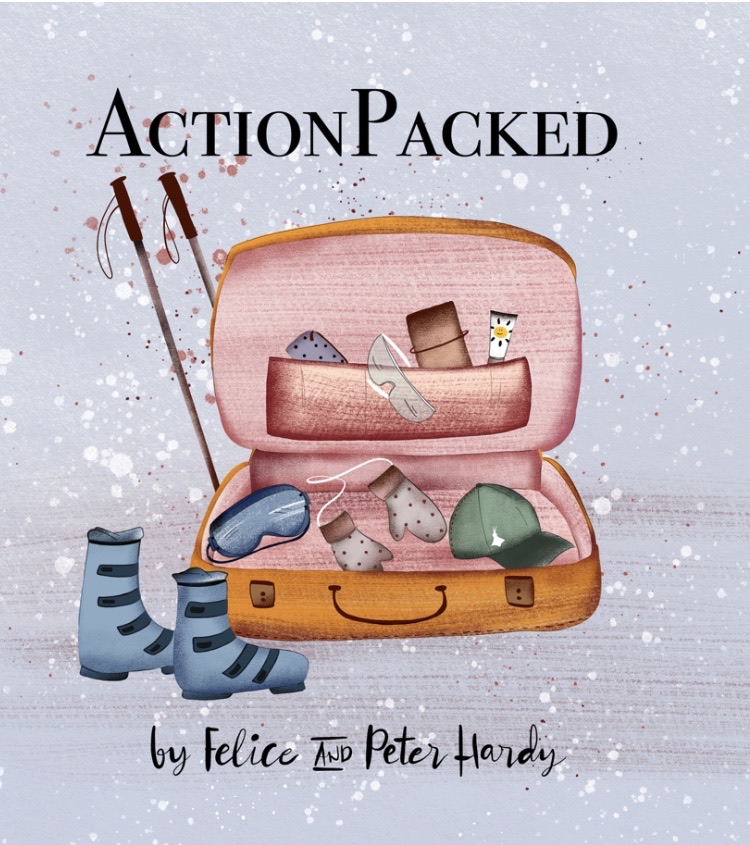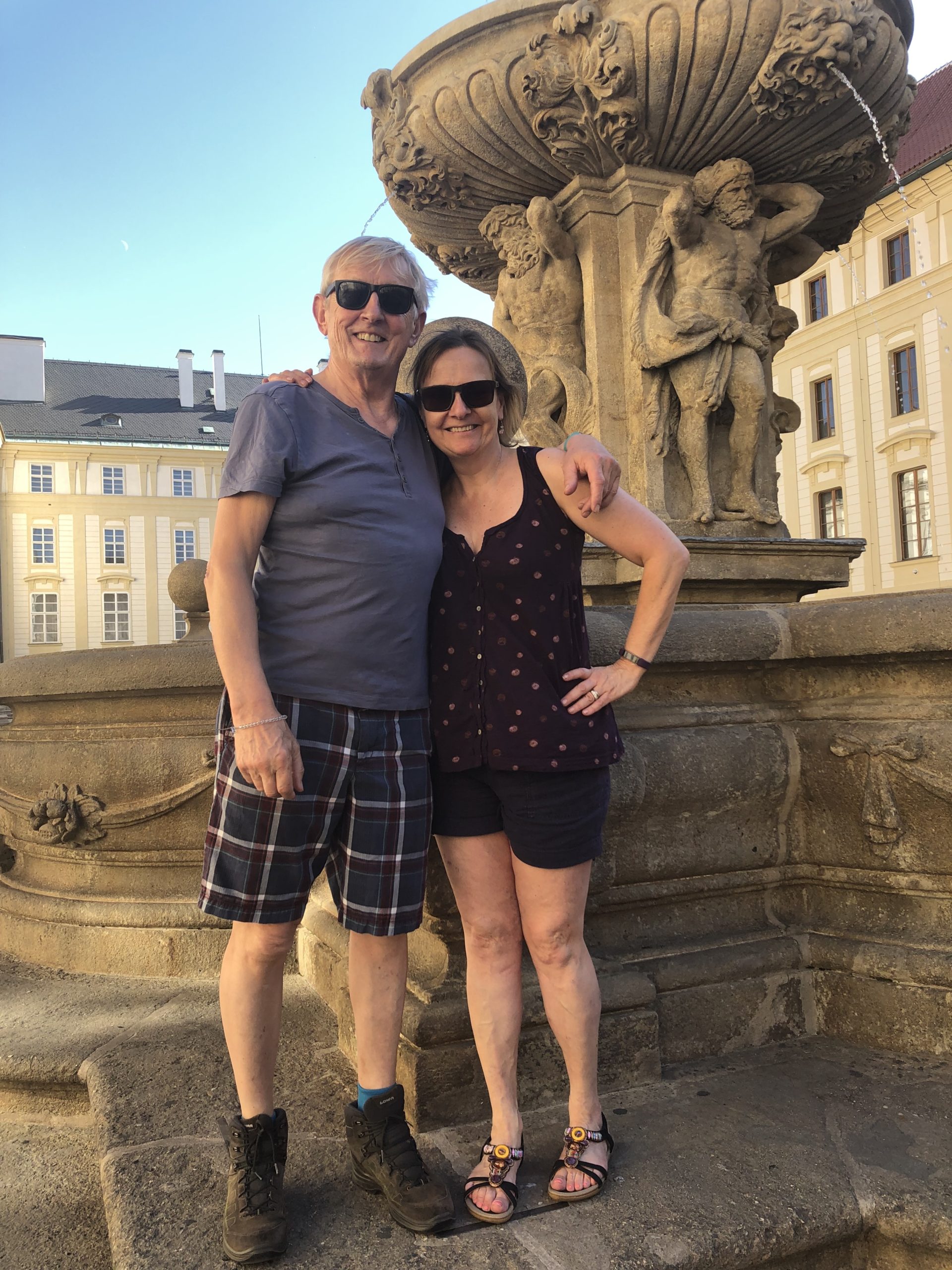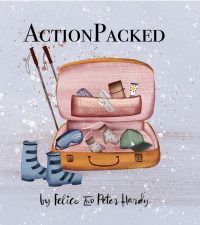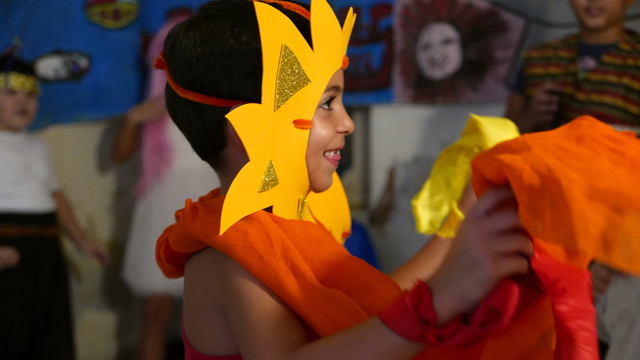
Playing at Khandaq-Al-Ghamiq, a deprived area of Beirut. Photo: © Seenaryo
Peter Welcome to our travel podcast. We’re specialist travel writers and we’ve spent half a lifetime exploring every corner of the world.
Felice So we want to share with you some of our extraordinary experiences and the amazing people we’ve met along the way.
Peter This week, we’re talking about the Middle East or more specifically about aid for tens of thousands of refugee children from Syria and Palestine who are living in camps in Lebanon and Jordan. For the past six years, London-based charity Seenaryo has been providing educational support for these traumatised children and grown ups as well in a highly unusual way – through theatre and play-based learning. We caught up with one of the founders.
Felice Oscar Wood, welcome to Action Packed Travel.
Oscar Thank you very much for having me on the podcast.
Felice Now, you left Oxford with a first class degree in English; teaching theatre in Beirut and Amman seems an unusual career choice. Tell us how this came about.
Oscar The first project we did was in 2015, and it came about thanks to my very dear friend and co-director, Victoria, who’d been living in the region, both Lebanon and Syria, for several years. Victoria and I had in the UK led summer camps with children and these were just week-long projects of original theatre, new music, dance, spectacle, puppets, you name it. All of that in a week, and performing on the last day to an invited audience.
Victoria was in Lebanon at the start of the Syrian crisis, which was 10 years ago now. She essentially twisted my arm to come out and pilot the same week-long project in Lebanon – one in a Palestinian refugee camp, one in a Syrian refugee camp – to see how it went. So that was that was our humble beginnings. And the following year, me and my partner Naqiya – my romantic partner but also my partner in work – we took the decision to move full time and try to see if we could make it work year-round.
That was the beginning of Seenaryo, just visiting in the summer and then the following year in 2016, Naqiya and I moved out full time in order to see if we could make Seenaryo work all year round. So not just the small projects, but starting to build a programme of projects running all year round of theatre, music, play-based learning.
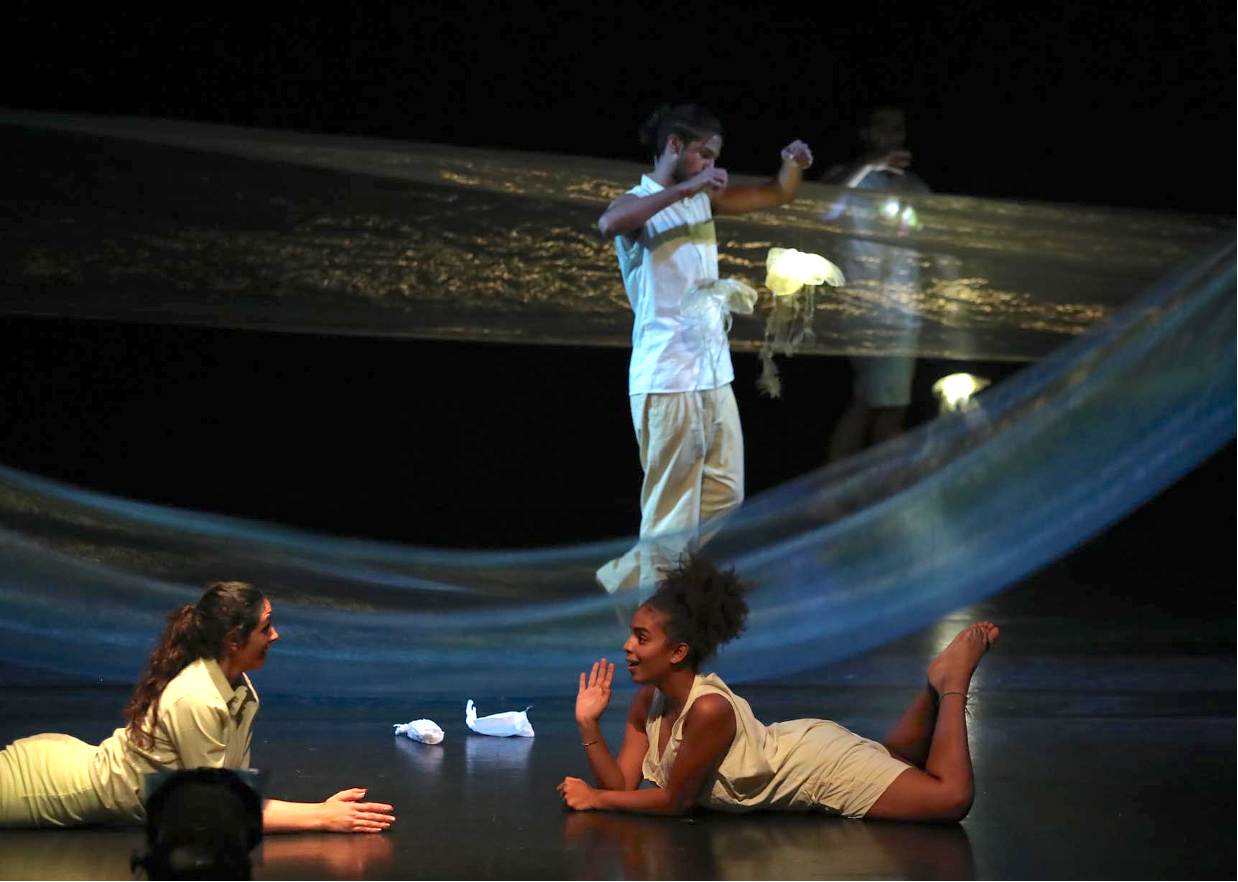
Peter What sort of impact have you had? How many children have you managed to help from the refugee camps?
Oscar Well, we’ve reached 37,000 people and that’s not actually just children. We also work with young people and women, and also not just refugees but also importantly Lebanese and Jordanians, many of whom are just as impoverished or as vulnerable as refugees. I mean, it’s really important to us to work with those host communities. In fact, some of our projects, especially our theatre projects, focus on cohesion between both sets of communities, because obviously there can be…it’s not a rule…but that there can be tensions there, and theatre is a great tool for social cohesion particularly.
Peter I should imagine that in both countries, the level of education is pretty slim.
Oscar Yes. In Lebanon, only 30 percent of children go to public school and the majority actually attend private schools. But the majority at those private schools are extremely low income…parents pay a nominal amount for their children to go to school. And yes, as you say, the general level of education or the general style of education is perhaps what we might call quite didactic, let’s say. So the role of Seenaryo is particularly to increase interactivity an when we’re working with very young ones, we focus on bringing play into the classroom through games and songs and stories.
Another thing which is worth saying is that when there’s a big influx of refugees into a country, obviously lots of new schools have to start from scratch. Therefore you get many, many teachers who suddenly find themselves with this new employment, but no experience really of teaching in the past. It’s almost a default employment if a school happens to open in your neighbourhood. So we’re working with many teachers who have only been in it for a year or two.
Peter What kind of theatre? I can imagine it’s not Shakespeare? I mean, what kind of theatre is it?
Oscar All of our theatre is devised. That means that when we arrive in the room with 30 children or 15 teenagers, we don’t actually know what’s going to happen next. So we might begin with a very small stimulus like a poem or perhaps a theme like ‘the ocean’. And we throw it over to them and and see what ideas they come back with in improvisations, games, storytelling.
Inevitably, this is a platform for some of these people to tell their own stories, perhaps for the first time, especially a public platform. We as directors and facilitators are taking their stories, but also encouraging them to be creative and artistic. So not necessarily just putting those stories on a stage, but encouraging creativity and using dramatic device and weaving it all together is something that ultimately is going to be entertaining, compelling.
Felice So what about language? Do you speak Arabic?
Oscar Yes, I do. So when I’m working in Lebanon or training teachers or working with children, I’m working in Arabic. I applied myself hard upon arrival to learn it but that was, to be honest, a big motivation for me going, I wanted to challenge myself to see if I could work in another language. I did actually start a little bit before, going to SOAS in London doing beginner Arabic classes. It’s something that I’ve really loved and even now I’m back in the UK, I still work for Seenaryo, so I’m still on Zoom doing lots of stuff in Arabic.
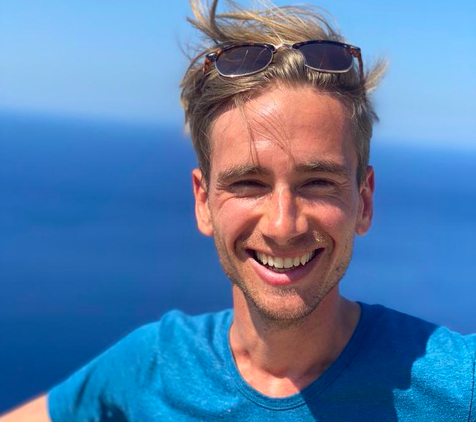
Oscar Wood
Felice Did you have any experience in teaching drama before?
Oscar I had been teaching theatre and music in East London for about 10 years. I was leading lots of choirs, I was working in primary schools, secondary schools, I was a classroom teacher, I was an out-of-classroom teacher, I’d been training teachers as well. So I’d had quite a wide experience of delivering the arts, and I guess part of my reason, my selfish reason for wanting to move, was for the next challenge.
Felice What age of children does it start from?
Oscar Well, when we’re working with teachers, we’re often working with teachers who are in kindergarten. So these are three year olds, four year olds, five year olds. We start working with their teachers, getting them to introduce these play-based activities in order to deliver their curriculum. We go right up to – especially with women’s projects – right up to 60-plus. So in some of our theatre projects, we actually have an intergenerational thing going on, which is really exciting. So a woman in her 60s is working with, let’s say, a 19-year-old young woman, and that’s another interesting dynamic.
Peter So are you welcomed into the camps?
Oscar Yes, there is usually a lot of enthusiasm for what we’re doing and particularly a desire to understand how we’re doing what we’re doing. That was actually a big part of why we decided to come back and try to turn it into something sustained and permanent, because people were asking, ‘How did you do this theatre thing in a week? How did you get from A to B?’ So part of the motivation was always to try to build the skills and capacity to make theatre, to lead play-based learning in the communities we’re working in. And every project we do, if we’re working with 12 children and two facilitators, we’ll often have a trainee with us learning how to do that themselves.
Felice Is it just drama or is it dance and singing as well?
Oscar Yes, multi-discipline work is really important to us. So if we’re doing a piece of theatre, we encourage – both the directors we work with and our participants – to bring physical theatre and dance into it. Actually that’s an important part of telling their stories in a non-direct way, because obviously as soon as you’re moving and dancing, you tend to be taking things slightly into the abstract. That’s interesting for us because we’re pushing participants’ way of communicating to become maybe less direct, maybe more metaphorical or allegorical. So, yes, multi discipline is super important for us.
In fact, at the beginning, also, we don’t do this anymore, but I used to lead choirs…leading choirs is very much what I used to do in London. So I was leading 30-strong choirs, often with groups of children. It was a steep learning curve for me as well, learning the music of the region, which uses a very different musical vocabulary from a European choral tradition. So that was – along with the language – getting my head around different modalities and scales was a very steep learning curve, but very enjoyable. I’m definitely not there yet.
Peter I presume a lot of children have horrific experiences in Syria before they get to the refugee camp. That must be difficult.
Oscar Yes, and I think when I started working especially, I was more sensitive to it. As ever, I guess it’s the same being a doctor or any work like that where you’re coming into contact with traumatic situations – you do slightly desensitise to it, which is probably necessary. I mean, it’s worth saying that in London I’d work with very vulnerable communities as well, so I wasn’t unused to trauma. One thing I noticed, particularly in children of let’s say 11, 12, it was clear they were taking on carer responsibilities at home and bearing a lot on their shoulders. I would just notice small behaviours like hand-wringing or fidgeting that looked to me like behaviours of much older women or men…but born in these young or carried in these young bodies. I used to find that upsetting.
Felice Are you based in Beirut, mainly?
Oscar Based in Beirut, which is a very high-octane city. It’s busy, it’s noisy, and it’s like a city of small villages, I would say. Lebanon is has got a very diverse set of religions and even within one religion – say Christianity, you’ve got Orthodox, Syrian and Catholic and Maronite. Each area of Beirut is like a little microcosm and you move 20 metres to the west and you suddenly feel like you’re in a totally different part of town and if people don’t recognise you, they want to know who you are, explain yourself. At the same time, people are super friendly.
In Beirut, it kind of felt like a constant learning curve. The city is so dense with history and especially politics and every day someone’s pointing out something new. You know, ‘You see that bridge? That was bombed by Israel in ‘82.’ They couldn’t work out whether the Jews or the Christians were going to rebuild it, and that’s why it’s still half-finished. You know, every day you feel like you are absorbing more information about the city and I don’t feel like you ever really get to the bottom of it.
Peter Have you felt threatened or endangered at any stage during all those years?
Oscar With one exception, which I’ll come to in a minute, I don’t think so. I would say that day to day, Lebanon is a really safe place in terms of crime. For example, my partner, Naqiya, always says that she feels safer wandering home at night than she does in London. I mean, obviously, it’s true that there’s been a recent civil war and another war in 2006. There are political protests, sometimes you spot a gun around, or hear a gun probably fired in celebration, most likely.
But the reality is, while the greatest threat is from its own government through neglect, which we obviously saw memorably last year, or very occasionally foreign powers and proxies, but day to day it’s a safe, welcoming country. If there’s danger coming in general, you know about it in advance.
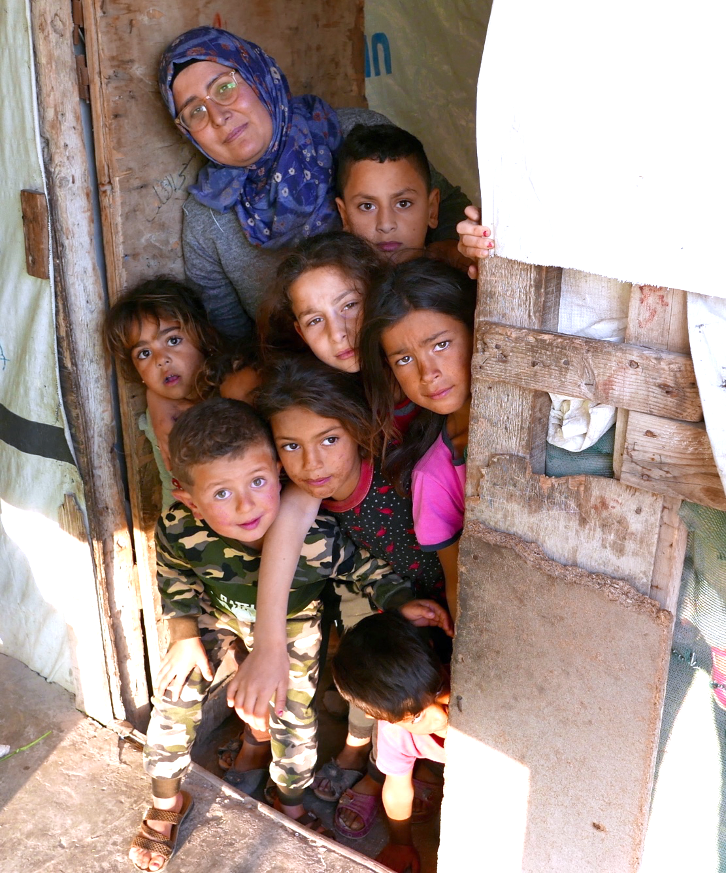
Felice And what were your living conditions like?
Oscar In terms of living conditions, it’s quite a hard question to answer because there is such serious inequality in the country. These days, 50 percent of the population sits below the poverty line but then you’ll wander down a fashionable street in Beirut and people are eating expensive sushi. So it’s tricky to answer, but no, the reality is day to day there are electricity cuts and water shortages for everybody; everyone owns a generator. The country still runs on diesel power stations, which is a ridiculous situation, particularly since there have been offers to the Lebanese government to build gas power stations. But political dysfunction has stopped that from happening. So living conditions are definitely affected by the lack of infrastructure that’s been built in the country.
Felice How about the food. How did you find that?
Oscar Lebanese food I think is famous all over. Obviously there’s the stuff we know from restaurants here, the meze and hummus, halloumi, shawarma, those kinds of things. But I think the thing you discover in Lebanon is the home cooking, which you don’t discover until you’re invited into someone’s home.
It can be very localised. I remember once I was up in a village in the mountains and I was assured not only that the dish I was eating wasn’t cooked anywhere else in Lebanon or Syria, but even the root vegetable that was in the dish didn’t grow anywhere else except for on this mountain. So I’m not sure how much I credit that story. But yes, it’s very localised and everyone has their own specialised recipes.
Peter You mentioned no dangerous experiences, with one exception. Tell us about that?
Oscar Yes, that was the Beirut explosion last year. I wasn’t actually living in Beirut at the time, I just happened to go back to visit, to lead some training. I was in an art centre within a kind of black-box theatre space, leading a workshop to about 20 teenagers, older teenagers and young people. We were probably two kilometres away from the blast site, but if you’ve seen any of those pictures you’ll know that two kilometres isn’t really far enough.
I’ll say now that no one we were with was seriously hurt, but we were midway doing quite a joyful drama exercise. There was actually a smaller initial blast which rocked the room. I think at that stage, I guess I thought it might be a bomb, maybe in the distance. Then there was the much more serious blast, which was a surreal moment. I remember the room seemed to move in on itself, all four walls came towards me. It felt like kind of something from a Christopher Nolan film like Inception. Also, we were all particularly scared with that second blast, as I guess we thought we were in an airstrike or shelling or something. So that’s when people really started panicking.
I was nominally in charge of this workshop and I had teenagers there, some of whom I taught actually some Palestinian teenagers who I’ve taught since…five years ago. So, I did I did feel very responsible for their safety. There was a lot of panic and running. Eventually we got everyone out safe. I definitely didn’t feel like I was really off my teacher training handbook; I didn’t know what the right thing to do was.
I was actually with some Syrian people of my own age, so I was actually very much looking to them as I knew they’d been in similar circumstances before and they knew what to do – get against a big supporting wall, wait. Then when there’s no more noise, get out. We got everyone into cars and home safely. But I was very shaken, obviously,
Peter But in particular because you had no idea how far away it was or what was going on?
Oscar Precisely. Nor did the rest of Beirut and that car drive…I then drove back to my partner Naqiya, who was with my co-director, Victoria…that car drive was crazy. People were setting up roadblocks in the road; I saw a few kind of guns out because people didn’t know what was happening. They thought perhaps they were under invasion, which is not something Lebanese are unused to; they’ve seen it before so they thought maybe that was coming again. There was just glass and rubble everywhere, I can’t believe I didn’t get a puncture. But it was very frightening.
Felice In your free time, did you travel around at all?
Oscar Yes, a lot. Lebanon’s only the size of Wales, but much like its history and politics, it is dense with stuff. I mean, it’s famously you can – the cliché is you can ski in the morning in the mountains and then swim in the afternoon, which I actually did when my parents came to visit. I was very pleased about that. So it’s got extraordinary natural beauty.
For me, though, what I love is the old cities. There’s Saida in the south – Sidon is the English name. Up north as Tripoli, and they have beautiful hammams – bathhouses, and Mamluk mosques. You can get really lost in those souks. There’s an ancient tradition of soap making. That’s my favourite thing to do, is get a bit lost in one of those cities and chat to people and inevitably end up drinking coffee with them.
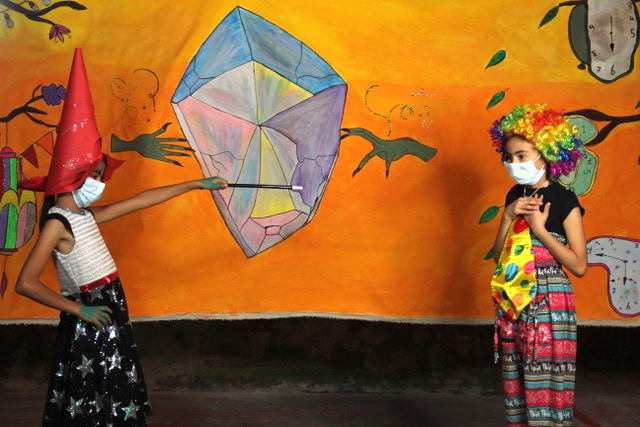
Children in Jordan. Photo: © Seenaryo
Felice Then after Lebanon, you went to Jordan?
Oscar We set up in Jordan at the same time. So I was visiting Jordan, but I never actually lived in Amman in the capital. But I did visit a lot. It’s a very different sort of country, even though it’s pretty much next door. It’s definitely a slower pace of life and it feels kind of liminal, somewhere between the sort of Levant area, which I guess is Syria, Lebanon, Palestine, and the Gulf down south. So Jordan has beautiful green areas and nature reserves, but then it’s also got a lot of desert. It’s got a much stronger Bedouin culture as well.
I very highly recommend it as a holiday. It’s also a very easy holiday; definitely not somewhere to be intimidated by. It’s a brilliant place to visit. There’s Petra, the old ruins and Wadi Rum that’s the amazing desert in the south, castles, Roman ruins. It’s an amazing place.
Felice So now that you can’t go to any of these places because of Covid?
Oscar Covid has intermittently shut down both countries, but actually for Seenaryo it was our most impactful year, last year, despite the lockdowns. We did a big distance learning program, using activities from our play-based materials – that was partly commissioned by some big NGOs. We often work with much bigger fish than us, like the International Rescue Committee or World Vision. So last year I think we reached 10,000 children just through our distance learning stuff.
We’ve also moved our theatre totally online, so we’re able to do the sessions on Zoom and then participants are sending us films of themselves on WhatsApp. Jordan and Lebanon are very much WhatsApp lovers – the country seems to run on WhatsApp, so that’s been a great tool for us during this time. And then we have editors cutting together everyone’s videos and so we’re still producing these pieces of theatre, which are films at the same time.

Peter So tell us about the funding of Seenaryo? You obviously had very humble beginnings, but you’ve managed to raise quite a lot of money in order to do all your projects.
Oscar Yes, at Seenaryo we’re very lucky to have quite a diverse income stream. We have philanthropy from our very generous donors, we also apply and are occasionally successful for institutional grants. Some of those are from government or embassies, some of them are from arts foundations or other institutions.
We also generate our own income through selling our services sometimes, whether that’s going and doing a piece of theatre with the partners…beneficiaries…or we have our play-based learning stuff which is actually available on an app. So we’ll go and train a school or an NGO in using all of these play-based learning tools. We have quite a diverse stream of income.
Felice So you train locals to teach drama?
Oscar Yes, we absolutely. All the time we’re trying to build capacity in local facilitators, directors, and then working with teachers as well in school to to do what we’re doing. I’m sitting in London now, so all of this work is happening, led by Lebanese, Jordanians, plus of course Syrians, Palestinians, all based in the country, which I guess is why I was able to to return here.
Peter Where do you see yourself going over the next five years?
Oscar I find that difficult to answer, but I miss working directly with children, and I think this happens in a lot of professions. You do move away from why you started doing what you’re doing. So whether I stay with Seenaryo or not, I’d like to go back into the classroom at some point, that’s for sure.

Felice If people want to get in touch, maybe to help or to donate, how’s the best way for them to do that?
Oscar Well, that would be great. Our website is www.Seenaryo.org – it’s actually it’s a transliteration of the Arabic word, which means ‘script’, so it has a double meaning. But we’re also on Facebook and Instagram – you can find us there, and Twitter, and you can donate on our web page. So please do check us out.
Peter Oscar Wood, thank you very much indeed for appearing on travel today. And we wish you the very best of luck with the future with Seenaryo.
Oscar Thank you very much, Felice and Peter.
Felice That’s all for now. If you’ve enjoyed the show, please share this episode with at least one other person! Do also subscribe on Spotify, i-Tunes or any of the many podcast providers – where you can give us a rating. You can subscribe on Spotify, Apple Podcasts or any of the many podcast platforms. You can also find us on Twitter, Facebook and Instagram. We’d love you to sign up for our regular emails to [email protected].
© ActionPacked Travel
![]()
- Join over a hundred thousand podcasters already using Buzzsprout to get their message out to the world.
- Following the link lets Buzzsprout know we sent you, gets you a $20 Amazon gift card if you sign up for a paid plan, and helps support our show.
